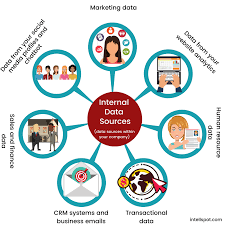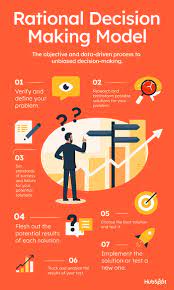Making Bad Decisions: Learning from Mistakes
Life is a series of choices, and sometimes we make decisions that don’t turn out as planned. These are what we commonly refer to as “bad decisions.” Whether it’s a small choice with minor consequences or a major life-altering decision, making bad decisions is an inevitable part of the human experience. However, it’s important to remember that these mistakes can offer valuable lessons and opportunities for personal growth.
One of the reasons we make bad decisions is due to the complexity of our lives. We often face multiple options, each with its own set of pros and cons. Sometimes, we may rush into making a decision without thoroughly considering all the available information or seeking advice from others. In other cases, emotions may cloud our judgment, leading us down a path we later regret.
But even in the aftermath of a bad decision, there is room for growth and self-improvement. Here are some insights on how to navigate through the consequences and learn from our mistakes:
- Acceptance: Acknowledge that you made a bad decision. It’s natural to feel regret or disappointment, but dwelling on negative emotions won’t change the past. Embrace your mistake as an opportunity for personal growth.
- Reflect: Take time to reflect on what went wrong and why. Identify the factors that influenced your decision-making process and consider how you could have approached things differently. Self-reflection helps build self-awareness and can prevent similar mistakes in the future.
- Learn from Experience: Use your mistake as a learning opportunity. Take note of what you’ve learned from this experience and how it can shape your future decision-making process. Remember that wisdom often comes from learning through trial and error.
- Seek Support: Don’t be afraid to reach out to others for guidance or support during challenging times. Discussing your situation with trusted friends or family members may provide fresh perspectives or insights that you hadn’t considered.
- Adjust Your Approach: Armed with the knowledge gained from your mistake, adjust your decision-making approach. Consider seeking out new strategies or techniques that can help you make more informed and thoughtful choices in the future.
- Practice Self-Compassion: Remember to be kind to yourself throughout this process. Making mistakes is a part of being human, and beating yourself up over them will only hinder your growth. Treat yourself with the same compassion and understanding you would offer to a friend in a similar situation.
- Move Forward: Once you’ve learned from your bad decision, it’s essential to move forward and apply those lessons to future choices. Dwelling on past mistakes can prevent personal growth and hinder progress. Embrace each new decision as an opportunity for growth and improvement.
In conclusion, making bad decisions is an inevitable part of life, but it doesn’t define who we are. By accepting our mistakes, reflecting on them, learning from the experience, seeking support, adjusting our approach, practicing self-compassion, and moving forward, we can turn these moments into valuable stepping stones towards a wiser and more fulfilling life journey.
Common Inquiries on Making Bad Decisions: Effects, Terminology, Causes
- What are the effects of bad decisions?
- What do you call a person who makes bad decisions?
- What is the word for making bad decisions?
- What causes poor decision making?
What are the effects of bad decisions?
Bad decisions can have various effects on different aspects of our lives. Here are some common effects that can arise from making poor choices:
- Regret and Guilt: When we realize that a decision we made had negative consequences, it’s natural to feel regret and guilt. These emotions can weigh heavily on our minds and affect our overall well-being.
- Negative Impact on Relationships: Bad decisions can strain relationships with family, friends, or colleagues. Depending on the nature of the decision, trust may be broken, and it may take time and effort to rebuild those relationships.
- Financial Consequences: Poor financial decisions can lead to significant financial setbacks. This could include accumulating debt, making risky investments, or overspending beyond our means. Such consequences can create stress and limit future opportunities.
- Missed Opportunities: Bad decisions may result in missed opportunities for personal or professional growth. Whether it’s turning down a promising job offer or neglecting to pursue a passion, the repercussions of these choices can have long-term effects on our lives.
- Emotional Turmoil: Making bad decisions can lead to emotional turmoil such as anxiety, stress, or depression. The weight of the consequences and the feeling of being trapped in unfavorable circumstances can take a toll on our mental health.
- Stagnation or Setbacks: Poor choices can hinder personal growth and progress towards goals. They may lead us down paths that are not aligned with our values or aspirations, resulting in stagnation or setbacks in various areas of life.
- Loss of Self-Confidence: Repeated bad decisions can erode our self-confidence and self-esteem over time. Doubts about our ability to make sound choices may arise, making it harder for us to trust ourselves in future decision-making processes.
- Health Implications: In some cases, bad decisions could have physical health implications as well. For example, engaging in risky behaviors like substance abuse or neglecting personal well-being can lead to long-term health issues.
While the effects of bad decisions can be challenging, it’s important to remember that they also offer opportunities for growth and learning. By acknowledging our mistakes, taking responsibility, and actively working towards making better choices, we can mitigate the negative effects and move towards a more positive and fulfilling future.
What do you call a person who makes bad decisions?
A person who consistently makes bad decisions is often referred to as “reckless,” “impulsive,” or “careless.” However, it’s important to remember that everyone makes mistakes and poor choices at times. It doesn’t define a person’s entire character or intelligence. It’s more helpful to focus on understanding the reasons behind their decision-making patterns and supporting them in learning from their mistakes.
What is the word for making bad decisions?
The word commonly used to describe the act of making bad decisions is “misjudgment” or “error.” Other words that can be used include “mistake,” “poor judgment,” “blunder,” or “misstep.”
What causes poor decision making?
Poor decision-making can stem from various factors, both internal and external. Here are some common causes of poor decision-making:
- Lack of Information: Making decisions without sufficient information can lead to poor outcomes. When we don’t have all the facts or fail to gather relevant data, our choices may be based on assumptions or incomplete understanding.
- Emotional Influences: Emotions can cloud our judgment and impair rational thinking. When we make decisions driven by strong emotions like fear, anger, or excitement, we may overlook logical considerations and make impulsive choices that we later regret.
- Cognitive Biases: Our brains are susceptible to cognitive biases, which are systematic errors in thinking that affect our judgment. Biases such as confirmation bias (favoring information that confirms pre-existing beliefs) or anchoring bias (relying too heavily on the first piece of information encountered) can lead to flawed decision-making.
- Time Pressure: Making decisions under time constraints can increase the likelihood of poor choices. When we feel rushed, we may not have sufficient time to consider all options or weigh potential consequences adequately.
- Lack of Experience: Inexperience or a lack of expertise in a particular area can contribute to poor decision-making. Without prior knowledge or understanding, it’s challenging to assess risks accurately or make informed choices.
- Overconfidence: Excessive confidence in our abilities can lead us to overlook potential pitfalls and take unnecessary risks. Overconfidence bias can prevent us from seeking advice or considering alternative perspectives, ultimately leading to poor decisions.
- External Influences: Social pressures, cultural norms, and peer influence can impact decision-making. We may be swayed by societal expectations or conform to groupthink rather than making choices aligned with our own values and priorities.
- Fatigue and Stress: Mental exhaustion and high levels of stress can impair cognitive functioning and decision-making abilities. When we’re tired or overwhelmed, our ability to think critically and make sound judgments can be compromised.
- Lack of Goals or Priorities: Without clear goals or a sense of priorities, decision-making becomes challenging. When we don’t have a clear direction or purpose, it’s harder to evaluate options effectively and make choices that align with our long-term objectives.
- Personal Biases: Our personal biases, such as personal preferences or prejudices, can influence decision-making. These biases may lead us to favor certain options without considering objective criteria or alternative viewpoints.
Understanding these causes can help us become more aware of potential pitfalls in our decision-making process. By addressing these factors and adopting strategies for thoughtful and informed choices, we can improve our decision-making skills and increase the likelihood of positive outcomes.



